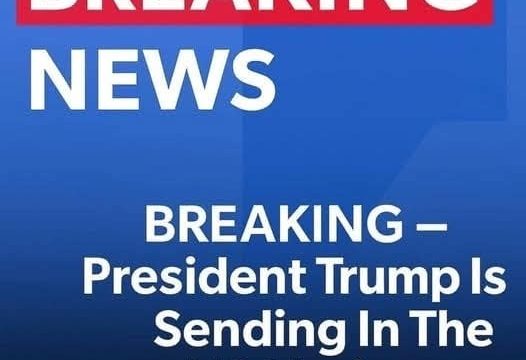I had just been discharged from the hospital after giving birth to my twin daughters, Ella and Sophie. My husband, Derek, was supposed to pick us up, but at the last minute, he called.
“Mom’s really unwell. I need to take her to the hospital. I can’t pick you up,” he said, sounding rushed.
Disappointed but trying to stay calm, I called a taxi. When I arrived home, I froze. My suitcases and bags were dumped on the doorstep. My heart pounded as I approached the door and called, “Derek?” Silence.

I tried my key, but it didn’t work. The locks had been changed. My stomach dropped. Then I saw the note taped to one of the bags.
Shivering in the cold, I tightened the blankets around my newborns as they whimpered. My hands trembled as I bent down to read:
“Sorry. I can’t do this anymore. I’ve left. Stay with a friend or family until you figure things out.”
For a moment, I couldn’t process what I was seeing. Derek had abandoned us—his wife and newborn daughters—on the day I came home from the hospital. We’d only been married for three years. Sure, money had been tight, and we had our share of arguments, but nothing had prepared me for this.
I dug my phone out of my purse, my heart hammering. I called Derek. Straight to voicemail. I tried again. Voicemail. My hands began to shake. The only person I could think to call was my best friend, Marisol.
“Hey, I need help,” I said, barely holding back my tears.
“Oh my God, are you okay?” she asked, her concern immediate.
“No… I just got home, and Derek’s changed the locks. He left a note saying he’s gone. I don’t know what to do.”
“Stay right there. I’m coming over.”
I rocked Ella and Sophie in their carriers, trying to calm them and myself. A neighbor peeked out through their curtains but quickly turned away. I was alone, with no home and two infants who needed me.
Marisol arrived within twenty minutes. “Oh my God,” she whispered, taking in the sight of me, the bags, the locked door, and my tear-stained face. “Let’s go. We’ll figure this out.”
She loaded everything into her car, fussing over my daughters as we strapped them in. Before leaving, I took one last look at the front door. How could Derek do this?
At Marisol’s townhouse, she set up the guest room for us. Though small, it felt safe. I finally calmed down enough to start making calls. Derek’s phone was still off, so I tried his father, Terrence.
“I’m at the hospital, dear,” he said, his voice strained. “Derek brought his mother in, but then he stormed off. I have no idea where he went. She’s stable now—it was a blood pressure scare.”
There was something in his tone that suggested he wasn’t telling me everything. But before I could ask, exhaustion took over.
The next few days were a blur of crying newborns and unanswered phone calls. I wanted to believe there was some misunderstanding—maybe Derek had a reason for all this. But the truth was simpler and crueler: he was gone. He refused to answer any calls or messages, and the note remained my only explanation.
Meanwhile, Ella and Sophie needed me. Caring for twins is exhausting under the best circumstances, and now I was doing it alone, juggling heartbreak and sleepless nights. Marisol was a godsend—she took shifts holding the babies, helped sterilize bottles, and checked on me constantly.
A week passed. Derek was still missing. Then I received a gut-wrenching revelation.
I went to the bank to check our joint account. Most of the money—intended for rent and bills during my maternity leave—was gone. Derek had drained it.
Something inside me snapped. I couldn’t sit around waiting for answers anymore—I had to act.
I contacted a legal aid clinic. They guided me through gathering financial records, documenting the changed locks, and taking pictures of the note. I had legal grounds for emergency spousal support and securing the house.
Then, unexpectedly, I got a call from Paolo, one of Derek’s old friends. We weren’t close, but he sounded worried.
“Can we meet for coffee?” he asked. I arranged for Marisol to babysit for an hour.
At the café, Paolo looked nervous, turning his coffee cup in his hands before finally speaking.
“Derek’s in serious trouble,” he admitted. “He borrowed a huge sum of money from the wrong people—tens of thousands, maybe more. They threatened him and his family. He panicked.”
Suddenly, everything clicked—his mother’s hospital scare, the missing money, the abrupt disappearance. Derek must have believed the only way to protect us was to vanish. Or maybe he was just too scared to face the consequences.
I returned to Marisol’s feeling conflicted. I was still furious at Derek for abandoning us, but now I understood the fear that drove him to it. When I told Marisol, she shook her head. “It doesn’t excuse what he did, but at least now you know.”
The following week, I took control of my future. With legal help, I secured emergency funds and temporary access to the house. It was painful stepping inside, remembering the life Derek and I had planned, but I wasn’t dwelling on the past anymore. My daughters needed stability, and I was going to provide it.
Surprisingly, Derek’s father, Terrence, reached out and offered financial assistance. “I had no idea things had gotten this bad,” he admitted, his voice heavy with regret. “Derek was under so much pressure. I wish I had seen the signs.”
Accepting his help wasn’t easy, but I did it for my daughters. If Derek was in hiding, I couldn’t rely on him.
The next few months were tough—lawyer meetings, late-night diaper changes, and slowly rebuilding my life. Marisol helped me clear out Derek’s old belongings. I found part-time remote work. Bit by bit, I moved forward.
Then, six months later, I got a text from an unknown number:
“I’m sorry for what I did to you and the girls. I got in over my head. I hope one day you’ll forgive me.”
It was Derek. No explanation, no way to reply. Just a hollow apology.
For a second, the pain resurfaced, but as I watched Ella and Sophie playing, I knew I didn’t need closure from him. I had built a life without him.
Days turned into weeks, and Derek remained a ghost. But I was okay. I wasn’t alone. I had Marisol, Terrence, and a newfound resilience. I learned that life can knock you down in ways you never expect, but what matters is finding the strength to get back up.
Being a single mother to twins wasn’t the life I had planned, but it became the most meaningful challenge I ever faced. Ella and Sophie were worth every struggle, every tear, every tough decision.
As I watch my daughters take their first wobbly steps, I realize something: the path we take isn’t always the one we imagined, but sometimes it’s the one we need most.





